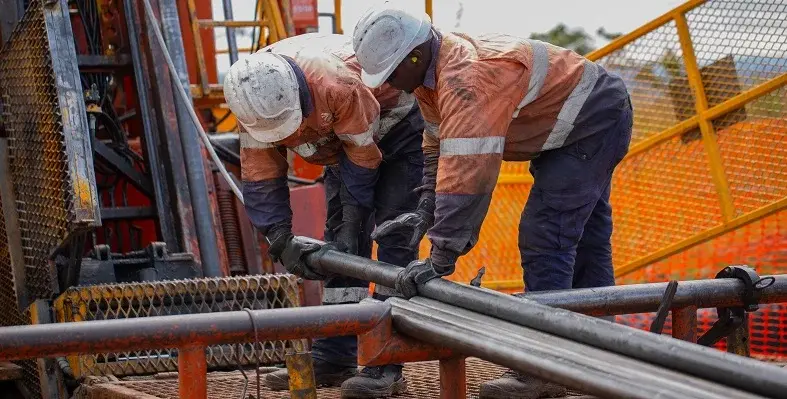Anna Rabin, founder and managing director of Above Ground Advisory, discusses Tanzania’s resurgent mining sector, one buoyed by diverse mineral resources and refocused administrative support
Founded in 2021, Above Ground Advisory offers strategic consultative support for the extractive sector with a focus in Tanzania. Boasting a team of experts with a depth of understanding across the political, regulatory, technical and commercial dimensions of the industry, it assists companies to enter the market, helps them understand it, and ensures they operate in a compliant manner.
“The company is growing in lockstep
with the growth of the sector in Tanzania,” explained Rabin. “We are focused on the country and have not really needed to diversify to neighbouring geographies because the Tanzanian mining sector has been on such a promising path.” While such a statement would have raised eyebrows in the previous decade, it is a testament to the changing narrative the current administration has fostered in the country. “In 2017, the mining legislation was all but fundamentally overhauled by the former President in a way that had very limited stakeholder engagement. What we saw was the large-scale mining operations continue to operate, but early-stage investors pull out. In the middle, there was a group of those who had already transitioned from a prospecting licence to a mining licence who had invested too much money to leave, but got stuck as the regulatory regime and political climate was not viewed by investors as being stable enough. This has resulted in a backlog of projects.
“The current administration and President has been having far more constructive conversations in this field, particularly around debt financing,” Rabin continued. “Many of the companies which were pursuing the projects in limbo were listed as juniors so couldn’t self- fund, so they needed external financing, largely debt. The conversations are now happening and are more productive. Now, the financial institutions are looking more favourably on Tanzania.
“There is perhaps still a gap between the level of detail in the Mining Act and its accompanying regulation and this is slowing down some negotiations. But, generally, it is more positive and we are witnessing a real appetite for people to invest in Tanzania.”
Digging into some of this detail, Rabin referenced the 2023 Mining Corporate Social Responsibility Regulations which aimed to provide clarity and detail to the CSR plans referenced in the Mining Act. This stipulated, as an example, that the allocation for CSR projects will be 40% assigned for projects in the local village of the host community and 60% for projects in the district, town and municipal councils of the host community.
“Such advancements are more specific about where the needs should be met whereas, previously, this level of detail was not there. It also encourages a more consultative approach with the local community to ensure the CSR contributions are valuable. Finally, the regulations add a requirement to have an approved CSR plan as well as quarterly and annual self-assessment reporting to ensure companies stick to their commitments. All this adds a lot more rigour from a compliance perspective to ensure contributions match with the needs of the host community and provides greater clarity for mineral rights holders.”
Discover the full interview in African Review November available here.












